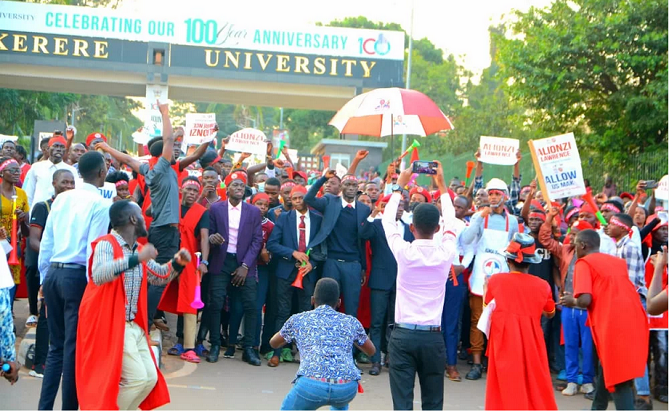Uganda’s policymakers are constrained by a lack of skills or limited expertise to understand and apply digital technologies in implementing national development plans. This is according to a study on the growth of Uganda’s digital economy.
For this, many policies and plans are either mismanaged, abandoned, or delayed beyond their useful timelines, according to the study by the UN Capital Development Fund (UNCDF).
The UNCDF has been facilitating the implementation of a global campaign dubbed “Leaving No One Behind in the Digital Era” in Uganda, as part of the contribution towards achieving the Sustainable Development Goals.
UNCDF has a goal to directly enable at least 1 Million rural people in Uganda “to lead productive and healthy lives by expanding access and usage of digital services,” including finance.
A review of their campaign over the last year revealed that lack of basic digital technology skills is not only among persons with low education, but also the leaders at policy implementation levels, who should have a reasonable level of education.
“The policy is in place, but how do you implement it? How do you leverage digital technologies to actually make these policies more inclusive?” said Chris Lukolyo, UNCDF Digital Country Lead.
This also was evident among users like teachers. The emerging trends due to covid 19 require that many processes are done online.
“The Education Service Commission is insisting that teachers will be recruited through e-recruitment services and paper applications are not allowed. They are forced to download applications forms, fill them, upload their CVs and submit them online as a bare minimum,” says Lukolyo.
He however says that in the long run, this is good for the education sector because the teachers will be forced to improve their own digital skills.
However, generally, the Inclusive Digital Economy (IDE) study gave the country a high score on policy, (77) saying the policies in place are adequate to ensure that the country achieves its aspirations.
The study by the IDE Advisory Board also notes that while there are good policies in place, they sometimes clash with each other during implementation.
The 15-member Board is made up of officials from the ministries of education, finance, planning and economic development, energy, agriculture among others.
Other members are drawn from the private sector and some government statutory agencies. “There is policy misalignment with market needs. For example, the government needs to raise revenue to support the national development plan, and this means taxation. But taxation also causes disruptions to innovation and production,” Lukolyo says.
Another challenge to the digital economy that implementers are facing is data privacy. This includes misusing people’s personal data, theft of personal data, and hacking. These, if not avoided or controlled affect public or customer confidence.
The study notes that in spite of these challenges, the digital economy has grown faster than it had been expected two years ago, mainly as one of the effects of the covid-19 pandemic.
One of the most effective measures against the outbreak has been said to be avoidance of close contact between persons, and this called for quick innovations in electronic transactions and other processes.
The effect of this could be a first-widening of the technology gap and, therefore, the rich-poor divide.
This is also echoed in the IDE Study especially regarding the low penetration of smartphones in Uganda, as well as limited usage of the internet.
According to MTN Uganda, it has about 5 million mobile internet users, while the user numbers for Airtel are estimated at 3.8 million.
The country did not get a good score regarding infrastructure, with the study showing that internet coverage is lacking in some parts of the country, while in most areas, the internet is too poor to support innovation.
While the two leading internet service providers claim to have 4G network in most of the country, this stops in major towns, with the other smaller towns either covered by the weaker 3G network or no network at all.
Some innovations, like mobile money, SMS, and USSD services, that only need a feature phone are also limited by the poor access to electricity, where recharging electronic equipment is not easy, especially in the rural areas.
These factors are also partly responsible for the low score given to innovations (41), on top of limited access to finance and the ability of innovators to secure agreements with large mobile network operators.
The study also calls on the government and service providers to ensure reduction in the cost of interoperability to be reduced, giving an example of mobile money transactions or even voice calls, across networks.
These high costs also affect the level of interest in digital innovation.
“Over the long-term, I can see an improvement in the teacher digital literacy and skills, and teachers will apply digital skills as a teaching tool,” he says, but adds that access to gadgets and the internet will still be a hindrance.
The Advisory Board says there should be programs tailored for teachers and specifically deployed in teacher training institutions so that every teacher who graduates has the minimum digital requirements to support their teaching abilities.
The study also calls for more gender sensitivity in the policies that affect digital advancement to ensure that women catch up with men.
Lukolyo adds that this year, they intend to ask commercial banks to introduce special credit products for digital innovations, which could be either zero-rated or flat-rated (with a low or no interest rate).
This would help the innovators access funding for their innovations.
-URN





